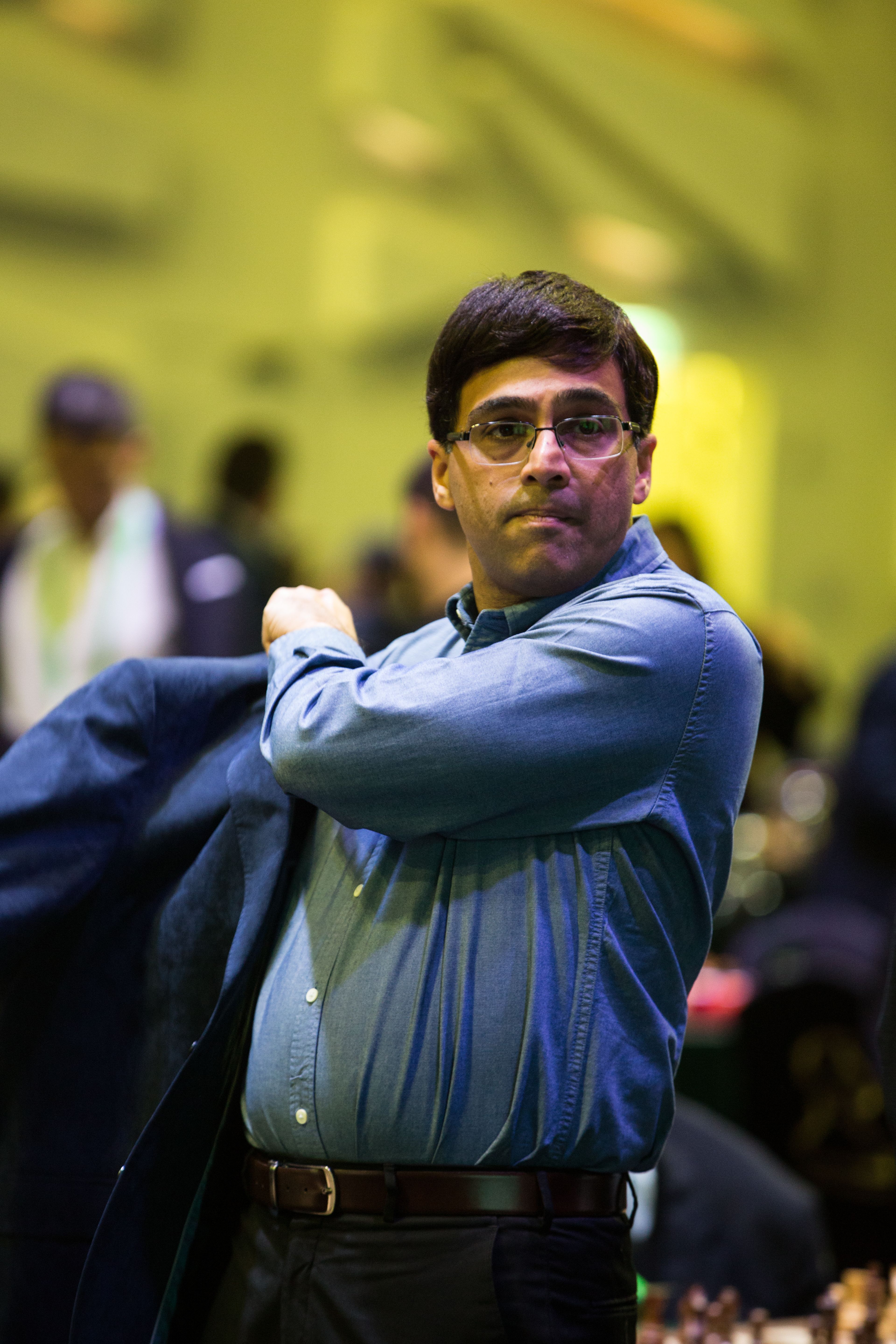
Would You Do This Chess Trick?
In last week's article, we discussed chess players' behavior. The big questions were if trying to flag your opponent in a dead-drawn position or playing out a completely lost position or some other perfectly legal things are ethical.
Judging by the comments, it looks like our readers' opinion on this subject was split. Today I want to ask a similar question about certain chess moves. You might ask, how on earth can a perfectly legal chess move be unethical?
Good question! Most chess fans around the world were stunned by an unusual double blunder by two top grandmasters:
This is not a typo! GM Anand indeed played 71. Qf8?? allowing GM Grischuk to checkmate him in one move, but the opponents agreed to a draw!

Anand. Photo: Maria Emelianova / Chess.com.
What's going on here? Well, the explanation is quite simple: both opponents saw the perpetual and when Anand by mistake played 71. Qf8?? instead of the correct 71. Qf7 the opponents didn't notice the mistake in a time trouble (remember, it was a blitz game!), so they just agreed to a draw. This curious episode reminded me of a game that was played more than 30 years ago. Both opponents were masters and it was a regular tournament (not blitz!).
Here is the position from their game:
White is winning, of course, but he will need to show some good technique there. Fortunately for him, the game was going to be adjourned pretty soon, so he would be able to check the fundamental book on endgames by GM Averbakh; therefore the win was practically assured. I know that for some young readers "adjournment of a game" sounds as mysterious as a "floppy disk." Here is some info on the subject.
When Black played 1...Ra5 check, White envisioned the following sequence of moves:
At first the game followed the master's expectations, but its finish was shocking. Look what happened:
The master who played White told me that when he realized that Black played 3...Ra6 instead of the expected 3...Ra5, he already grabbed his king. If his king were closer to the queen, he would at least be able to protect her with his king and save half a point, but alas, the queen was already out of the king's reach. So, White just resigned!
When I was told this story, I tried to comfort the master who played White and we agreed that Black's behavior was highly unethical. In this game Black was outplayed fair and square, so his last cheap trick was plain dirty and no master who respects himself would do it. Through the years I've seen many tricks like this one. Here is one classic game by GM Boleslavsky:
Why did a very strong GM Ludek Pachman play 26...Qa7? Well, for starters he had nothing to lose as a checkmate was unavoidable anyway! Did he hope that GM Boleslavsky would miss 27. Rxa7? I doubt it. I think it is more likely that he hoped that White might play for a "brilliancy" and give up the Ra1 by 27.Kf1??, missing 28...Qd1!!.
If this sounds far-fetched, remember a game where your opponent played on a completely lost position and you "punished'"him by promoting your pawns to knights or bishops.
Take a look at these notorious games:
As I mentioned in last week's article, I have started questioning my old beliefs, especially after seeing the following game:
This is the same trick. Black makes a ridiculous move hoping for a mistake. There is one important detail though. Black is GM David Navara. There are true gentlemen of the game, like the late GM Paul Keres, for whom "fair play" is not just an empty phrase. David Navara is certainly one of them. So, to me, whatever David Navara is doing is ethical by definition, since I think he simply cannot do unethical things.
That's how this single game by David Navara forced me to reconsider my old beliefs. Indeed, if Black is losing, why can't he try his last chance?
So, this week's question for you: Can a perfectly legal chess move be unethical?



